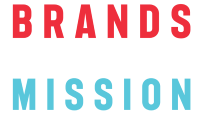More than two years after it began, the Coronavirus pandemic remains with us, and in a number of countries, a sixth wave has emerged. While pandemic fatigue has set in, hundreds of millions of people around the world still lack immunity from vaccinations or prior exposure. There remains much to be done – and that means enlisting companies. My own country of Kenya can show the way.
When the pandemic began in March 2020, before Brands on a Mission existed, two colleagues and I set up the National Business Compact on Coronavirus (NBCC) in Kenya. Later operational in neighbouring Uganda and Tanzania, this coalition activated with Amref Health Africa as part of the Hygiene and Behaviour Change Coalition (HBCC), a Unilever and UK’s Foreign, Commonwealth and Development Office (FCDO) funded global effort promoting hygiene-led practices to slow the pandemic.
I am proud to say that during this first HBCC phase, which lasted about a year, Amref-NBCC accomplished a great deal. We reached over 32 million people with key messaging through innovative digital assets. In addition, we procured and delivered vital WASH products: in Kenya alone, we distributed 100,000 masks, 300,000 bars of soap and set up 5,000 handwashing stations. We also trained 10,000 healthcare workers and community volunteers on preventing and controlling Coronavirus. We complemented government efforts by helping to equip quarantine facilities, dispose of medical waste, and provide food and transportation to frontline medical workers. We supported in setting up and sustaining the infrastructure for protecting people from Coronavirus, which has aided in keeping Kenya’s mortality rate below terrifying expectations.
However, given the need for rapid mobilisation, we did little on the behavioural side to embed lasting habits. And yet that’s essential for fully overcoming the pandemic and being best prepared for the next public health crisis related to hygiene. While many people now have some immunity from past infection(s), vaccination rates in East Africa are still stubbornly low at 17%, and infections are currently rising.
In the third year of the pandemic, and with self-protective hygiene behaviours and vaccinations still essential to protecting lives and livelihoods amidst new SARS COV-2 variants, phase 2 of HBCC has been launched. This time around, NBCC is once again partnering with Amref Health Africa. Amref-NBCC’s goal is to drive scale, reaching more communities and populations across Kenya, Uganda, and Tanzania, doing so in an inclusive way. This mobilisation ambitiously targets at least 75 million people in Kenya, Uganda, and Tanzania by April 2023. We are also putting NBCC Secretariat members on the ground in Uganda and Tanzania for the first time.
This campaign is a combination of:
- Promoting healthy hygiene behaviours through mass and social media
- Improving the enabling environment by building handwashing stations and providing soap, sanitiser and personal protective equipment
- Incorporating vaccination messages with hygiene messages to improve vaccination uptake
- Strengthening health systems
The message we are pushing is that protecting the health of our communities and families is in our hands. We are reminding people that simple personal behaviours like washing hands, wearing masks and social distancing indoors and in crowded spaces will help enable us to continue living our normal lives. And it is exactly for this kind of message that we need marketers on board. As I dived into in a previous Substack, marketers are experts in behaviour change. They are best positioned to craft educational and persuasive messages to get people to re-evaluate their behaviours and push them towards adopting behaviours that are better for their health. Amidst widespread pandemic fatigue, we need marketers to come up with creative and innovative ways of reminding people to practice positive health behaviours, which includes shifting social norms that are hindering their adoption. To overcome Coronavirus, we need the work of marketers.
This role for marketers has been exemplified by Pulse, one of our digital partners in this second phase. Pulse is an innovative African media company, operational in Kenya, Uganda, Ghana, Senegal and Côte d’Ivoire, that targets the youth audience. Its digital content is both informative and draws on key motivations to emotively trigger behaviour change. Importantly, Pulse uses a variety of mediums to create conversational and educational content that has community at its core. This content is highly engaging for its large audience as it is often delivered by the community itself through Vox Pops and informative videos. Infographics and myth-busting content led by health experts helps to educate and empower its audience, while focus group discussions provide important target group feedback. We can’t wait to make the most of Pulse’s innovative tools to expand our reach and really tap into the youth, who are essential to driving sustained impact.
It’s worth highlighting that NBCC in 2022 is not simply a repeat of where we were in 2020. We have big ambitions for the role of NBCC in working with both previous and new partners, combined with new funding. We want to create a model of how multi-stakeholder platforms can successfully tackle urgent public health and well-being issues. Importantly, NBCC is now hosted and managed solely by Brands on a Mission, and I am the chair of the NBCC Secretariat.
As far as the audience, HBCC is for everyone. With the support of our partners, such as Rotary and the Peter Ojiambo Foundation, we are placing a greater emphasis on reaching the most vulnerable populations in Kenya, Uganda and Tanzania, including people living with disabilities, mothers, children, and young people.
We’ve learned a great deal over the course of the pandemic, perhaps most of all that we need to connect to and mobilise young people. That’s how we’ll get far-reaching, sustained impact, for this and future public health crises. It’s not enough to set up the structures for preventing epidemics. We also need to engage people’s hearts and minds, and for that we need marketers.



